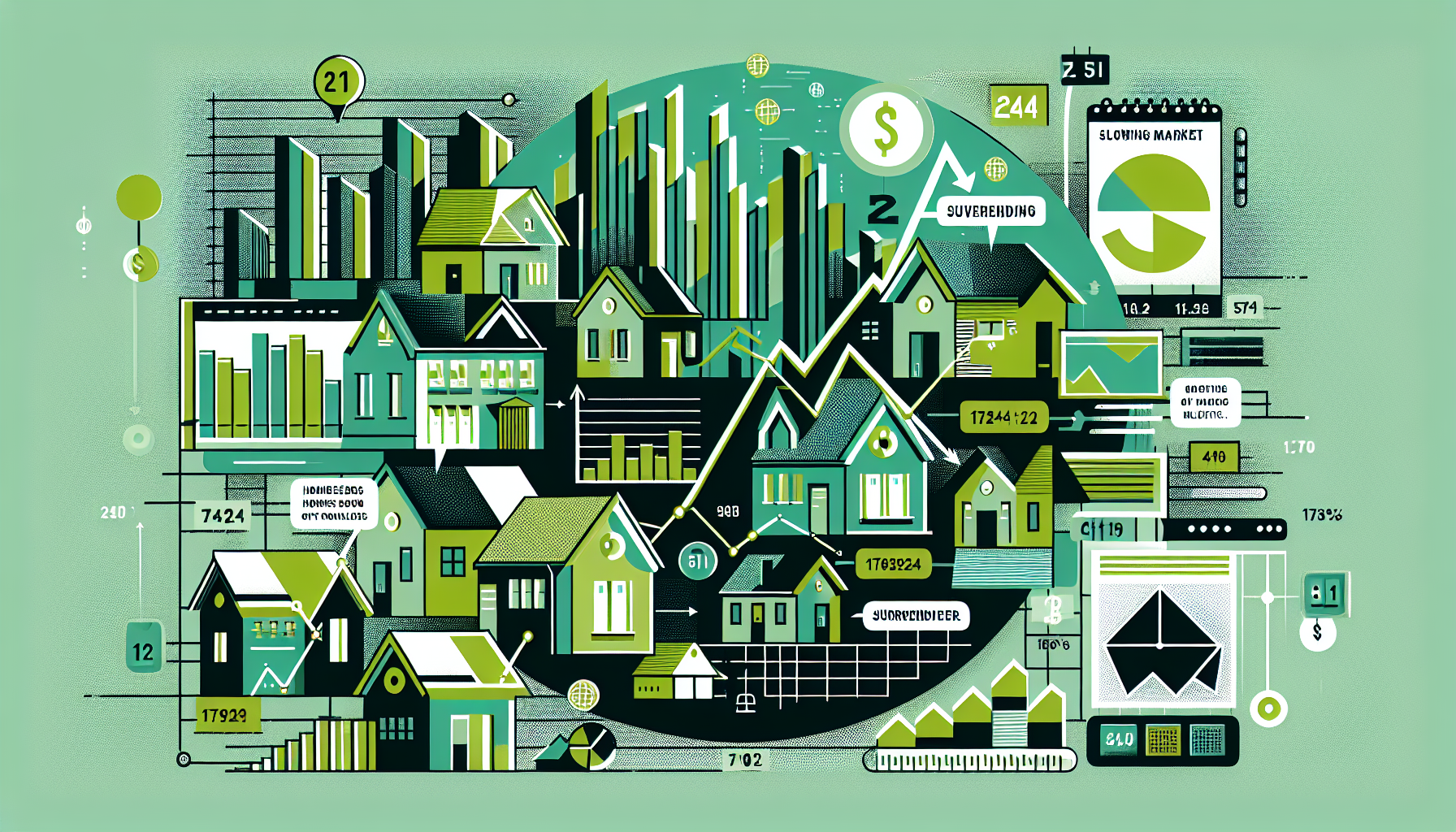Top economist sounds the alarm even louder on the housing market and says homebuilders are 'giving up'Fortune Mapped: The 10 Slowest Housing Markets in the U.S.yahoo.com Number of housing markets with falling home prices jumps sharply to 109—up from 31 in Jan…
Why it matters
- A significant increase in the number of housing markets with decreasing prices highlights a troubling trend in the real estate sector.
- Top economists are expressing heightened concern, suggesting that homebuilders may be withdrawing from the market, which could lead to further instability.
- The data indicates a potential slowdown in the housing recovery, raising questions about future investments and economic forecasts.
The U.S. housing market is facing serious challenges, as recent reports indicate a dramatic escalation in the number of areas grappling with falling home prices. According to a leading economist, the situation is becoming increasingly alarming, with many homebuilders reportedly losing confidence and retreating from the market.
In a stark shift from the beginning of the year, the number of housing markets experiencing price drops has risen sharply to 109 from just 31 in January. This significant jump illustrates a growing unease among economists and industry experts who fear that the current trajectory could lead to a more pronounced downturn in the housing sector.
Economists are sounding the alarm, suggesting that the retreat of homebuilders is not merely a temporary phenomenon but a sign of deeper issues within the housing market. The sentiment among builders has shifted, with many expressing doubts about the viability of new projects in light of the current economic climate. This change could have far-reaching implications for the broader economy, given the pivotal role that housing plays in economic stability and growth.
The increase in declining home prices is particularly concerning as it may signal a shift in buyer sentiment. As prices fall, potential homebuyers may become more hesitant to make purchases, fearing that they could be buying into a declining market. This hesitation could lead to reduced sales, further compounding the challenges faced by homebuilders and real estate agents alike.
Moreover, the economic landscape is further complicated by rising interest rates. With the Federal Reserve implementing measures to combat inflation, borrowing costs have increased, making mortgages less affordable for many potential buyers. This combination of high prices and elevated interest rates is creating a perfect storm for the housing market, leading to decreased demand and, consequently, price reductions in numerous markets across the country.
Real estate analysts are closely monitoring these developments, as the implications could extend beyond the housing sector. A slowdown in housing could lead to reduced consumer spending, affecting various industries that rely on home sales, such as construction, home improvement, and real estate services. Additionally, a declining housing market could impact employment rates in these sectors, further straining the economy.
In light of these developments, many industry insiders are advocating for a reevaluation of strategies among homebuilders. They suggest that builders may need to adjust their business models to adapt to the current market conditions. Some experts recommend focusing on smaller, more affordable housing projects that cater to first-time buyers and those seeking lower-priced homes, as this segment may be less sensitive to economic fluctuations.
Furthermore, the potential for government intervention cannot be overlooked. Policymakers may consider measures to stimulate the housing market, such as offering incentives for first-time homebuyers or introducing tax breaks for builders. However, any such initiatives would need to be carefully crafted to avoid unintended consequences that could exacerbate the situation.
As the housing market navigates these turbulent waters, the need for vigilance and adaptability among builders and buyers alike has never been more crucial. The increasing number of markets with falling prices serves as a stark reminder of the volatility inherent in the real estate sector and the broader economy. For stakeholders across the industry, understanding these trends and their implications will be essential in making informed decisions moving forward.
In conclusion, as the housing market continues to face headwinds, it is essential for all involved to remain aware of the changing landscape and be prepared to respond to new challenges as they arise. The coming months will be critical in determining the future direction of the housing market and its impact on the overall economy.











